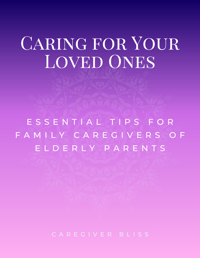As we age, our sleep patterns often change, and many elderly individuals may struggle to enjoy a restful night's sleep. Sleep is crucial for overall health and well-being, and helping your elderly loved one achieve a good night's rest is essential.
In this article, we'll explore practical tips and strategies to ensure that your elderly family member experiences a peaceful and uninterrupted night of sleep.
1. Establish a Consistent Sleep Routine
Creating a consistent sleep routine is fundamental for individuals of all ages, but it becomes particularly important for seniors. Encourage your loved one to go to bed and wake up at the same time every day, even on weekends. This helps regulate their internal clock and improves the overall quality of their sleep.
2. Create a Comfortable Sleep Environment
A comfortable sleep environment plays a significant role in promoting better sleep. Ensure the bedroom is cool, dark, and quiet. Consider using blackout curtains, comfortable bedding, and a supportive mattress. Remove any unnecessary electronic devices or sources of noise that may disrupt their sleep.
3. Encourage Regular Physical Activity
Regular physical activity has numerous benefits for sleep, as it helps regulate sleep patterns and promotes overall health. Encourage your loved one to engage in light exercise during the day, such as walking or gentle stretching. However, it's crucial to avoid vigorous exercise close to bedtime, as it may have the opposite effect.
4. Monitor Medication Side Effects
Certain medications can interfere with sleep, causing insomnia or other sleep disturbances. Consult with your loved one's healthcare provider to discuss the timing of their medications and any potential side effects that might be affecting their sleep. Adjustments to the medication schedule or dosage may be necessary to promote better sleep.
5. Limit Stimulants and Caffeine Intake
Stimulants and caffeine can have a lasting impact on sleep, especially for seniors. Encourage your loved one to limit their consumption of caffeinated beverages, such as coffee or tea, in the hours leading up to bedtime. Not only does caffeine keep them awake, but it’s also a diuretic. Additionally, advise them to avoid nicotine, another stimulant that can disrupt sleep.
6. Encourage Relaxation Techniques
Help your elderly family member unwind before bedtime by introducing relaxation techniques. Gentle activities such as reading, listening to soothing music, or practicing deep breathing exercises can promote a calm and restful state of mind. Avoid stimulating activities or discussions close to bedtime.
7. Address Any Sleep Disorders
If your loved one continues to struggle with sleep despite implementing these tips, it may be worthwhile to investigate potential sleep disorders. Conditions such as sleep apnea or restless leg syndrome can significantly impact the quality of sleep and may require professional evaluation and treatment.
Conclusion
Ensuring a restful night's sleep for your elderly loved one involves a combination of lifestyle adjustments and creating a conducive sleep environment. By incorporating these practical tips into their daily routine, you can help promote better sleep and contribute to their overall health and well-being. Remember, the goal is to establish healthy sleep habits that enhance the quality of life for your elderly family member.
We hope these tips empower you to create a serene sleep environment for your elderly loved one. Share your experiences or additional suggestions in the comments below, and let's begin improving the quality of sleep for our cherished family members. Your insights may be the key to helping someone else enhance their loved one's nighttime routine!
Free Guide:
Caring For Your Loved Ones
 Attention family caregivers! Are you struggling to provide the best care for your aging parents? Don't worry, we've got you covered.
Attention family caregivers! Are you struggling to provide the best care for your aging parents? Don't worry, we've got you covered.
Download our free guide, Caring for Your Loved Ones: 10 Essential Tips for Family Caregivers of Elderly Parents, and unlock the secrets to becoming an exceptional caregiver.
From adapting the home environment to promoting independence, this invaluable resource will transform your caregiving experience into a more rewarding journey. Don't wait—give your loved ones the care they deserve, and download your free copy today!

